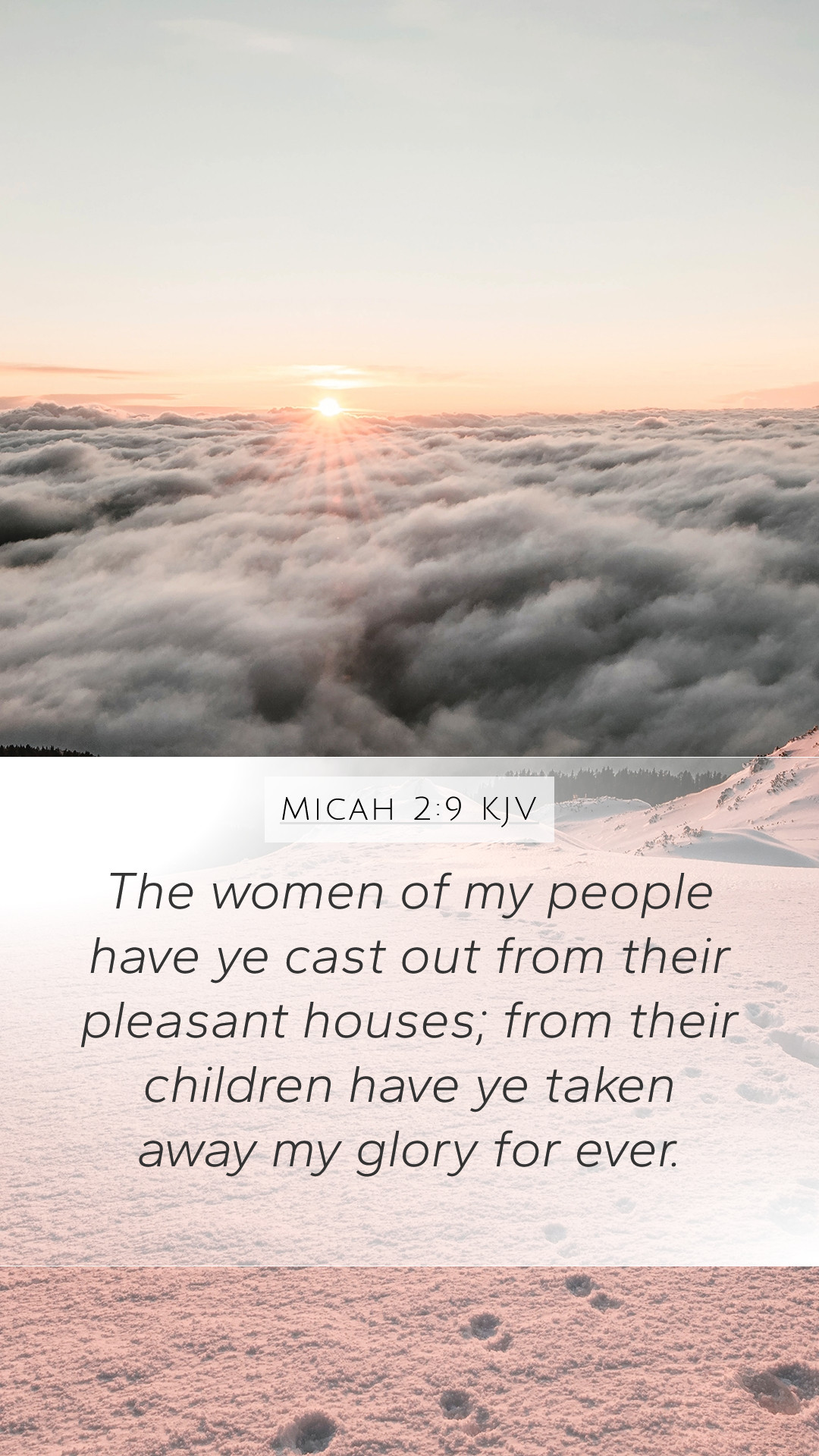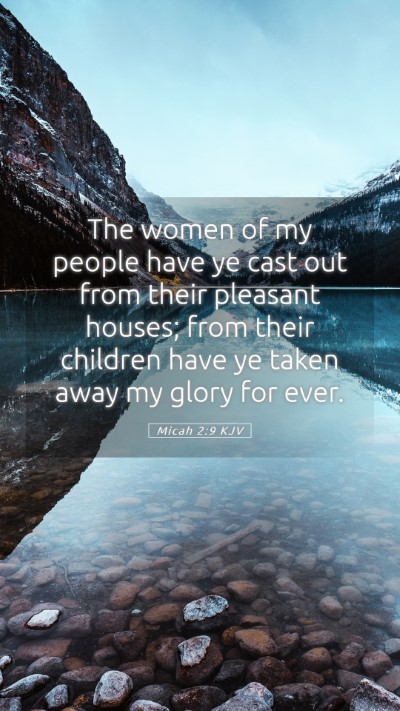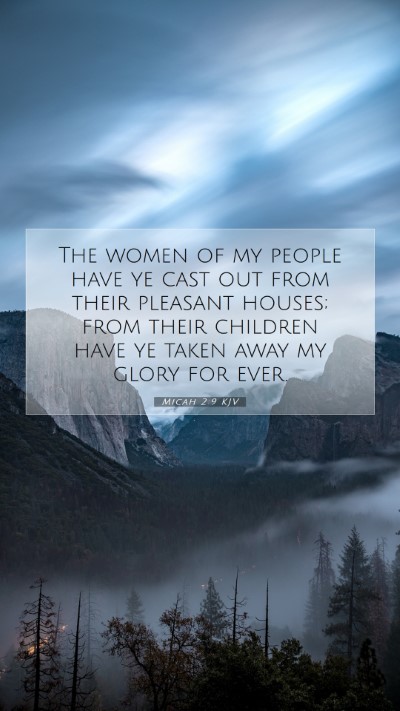Old Testament
Genesis Exodus Leviticus Numbers Deuteronomy Joshua Judges Ruth 1 Samuel 2 Samuel 1 Kings 2 Kings 1 Chronicles 2 Chronicles Ezra Nehemiah Esther Job Psalms Proverbs Ecclesiastes Song of Solomon Isaiah Jeremiah Lamentations Ezekiel Daniel Hosea Joel Amos Obadiah Jonah Micah Nahum Habakkuk Zephaniah Haggai Zechariah MalachiMicah 2:9 Meaning
What is the meaning of Micah 2:9?
The women of my people have ye cast out from their pleasant houses; from their children have ye taken away my glory for ever.
Micah 2:9 Bible Verse Meaning
Meaning and Explanation of Micah 2:9
Micah 2:9 states: "The women of my people have ye cast out from their pleasant houses; from their children have ye taken away my glory for ever." This verse highlights the social injustices faced by the vulnerable, especially women and children, during the time of the prophet Micah. Through an examination of this passage, we can uncover layers of meaning and understanding that are essential for anyone engaged in bible study insights or seeking bible verse explanations.
Context and Background
In Micah's time, the society of Judah was marked by corruption and ethical decay, especially among the leaders and wealthy landowners. The prophet Micah boldly criticized the injustices allowed by those in power, which often marginalized the less fortunate, including women and children.
Insights from Public Domain Commentaries
-
Matthew Henry:
Henry emphasizes the grievous nature of the oppression mentioned in this verse, arguing that it reflects a broader moral failure. He points out that the expulsion of women and the separation from their children represents a shocking violation of familial bonds, which is in direct opposition to God's design for community and care within society.
-
Albert Barnes:
Barnes notes that the casting out of women from their homes signifies the ruthlessness of the wealthy, who exploit their power without remorse. He further connects this neglect to the idea that in doing so, they not only harm individuals but also bring shame upon themselves and the land, dishonoring God's covenant and glory.
-
Adam Clarke:
Clarke provides a noteworthy historical interpretation by highlighting that this verse underlines the special attention required for protecting those in vulnerable situations. He elaborates that the implications extend beyond mere physical displacement, hinting at a spiritual loss when the 'glory' associated with family and protection is stripped away.
Thematic Elements
This verse emphasizes several key themes in biblical exegesis:
- Injustice and Inequality: The treatment of the women indicated a systemic issue that God condemns fiercely.
- God’s Justice: Even as Micah decries the injustices, there's an underlying promise that God sees and will address these wrongdoings.
- The Value of Family: The separation of mothers from their children illustrates the fundamental units of society being harmed, reflecting God's concern for family units.
Application to Daily Life
Understanding Micah 2:9 allows for critical reflection on current societal injustices. This can inspire engagement in local bible study groups, focusing discussions on how believers can address similar injustices today. Whether through advocacy, community service, or educational endeavors, the call for justice remains timeless.
Cross References
- Isaiah 10:1-2: Similar themes of oppression and injustice are addressed.
- James 1:27: The call to care for the vulnerable in society aligns with the message of Micah.
- Proverbs 22:22-23: Encourages protection for the poor and needy.
Conclusion
Micah 2:9 serves not just as an indictment of past societal failures, but it is also a cautionary tale for modern believers. The meaning of Bible verses such as this one is not limited to historical context, but it also invites ongoing understanding Scripture as we seek to embody justice and compassion in our communities today.


